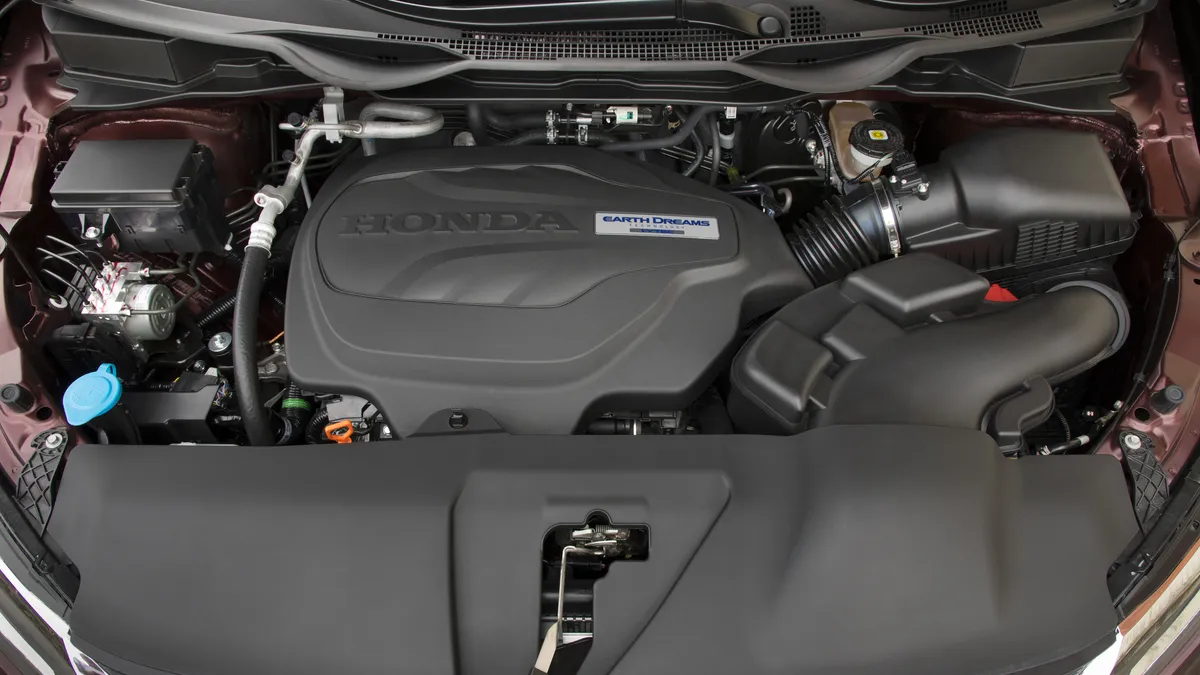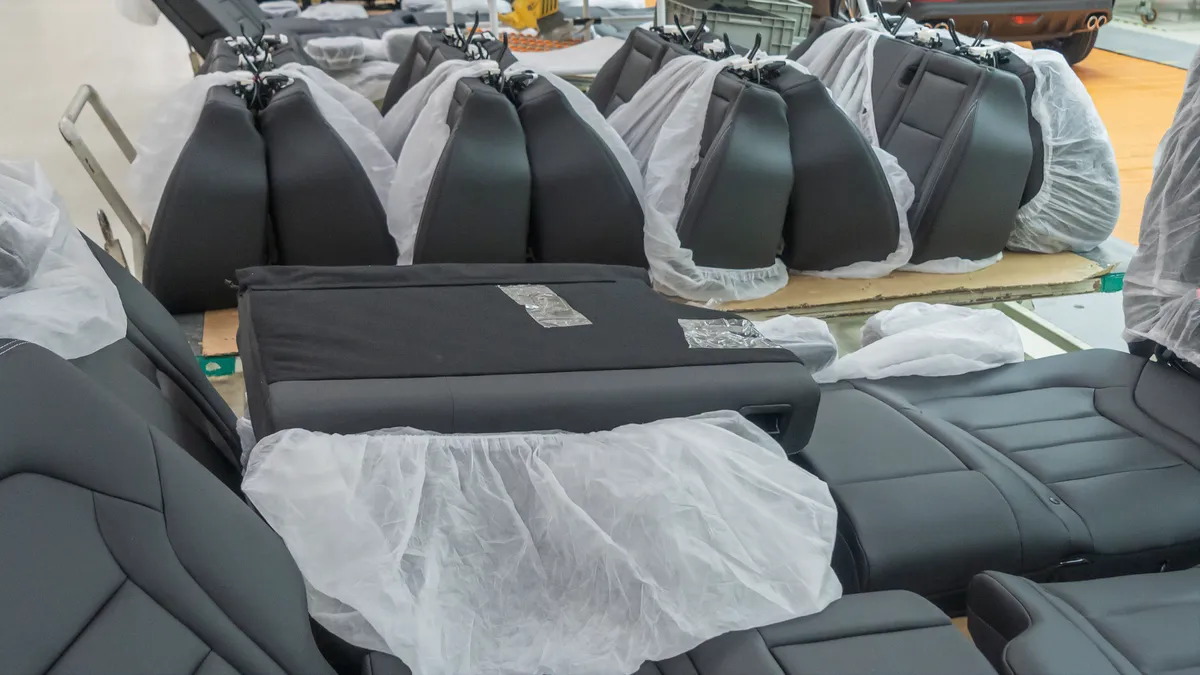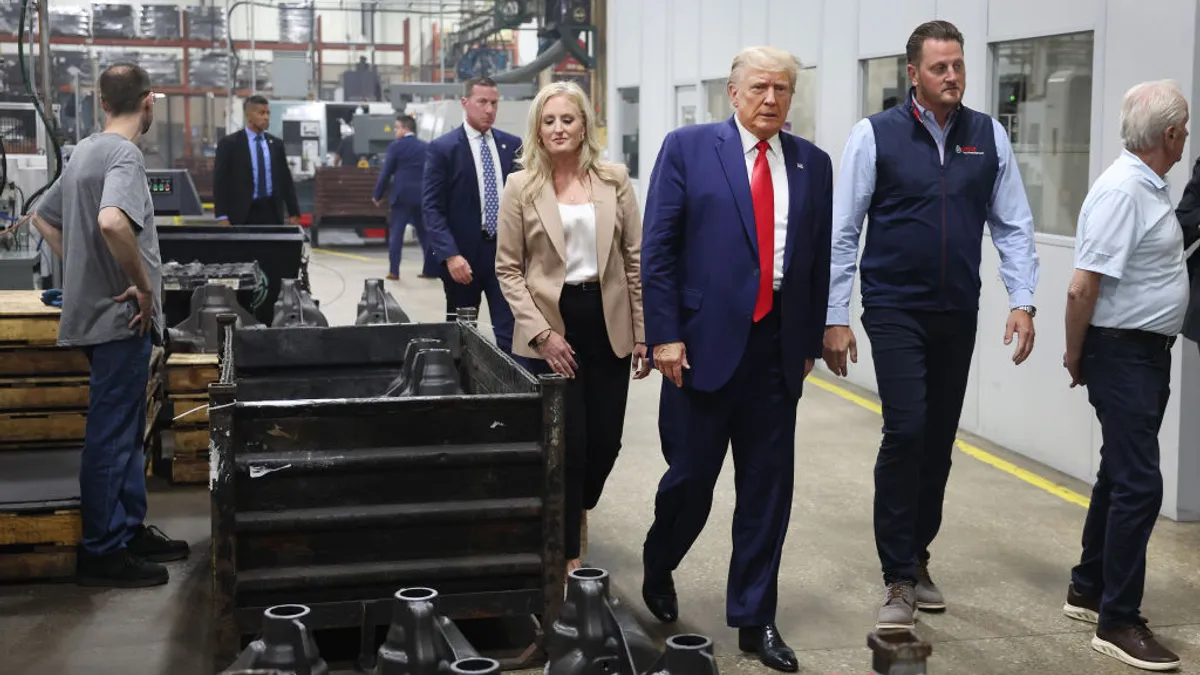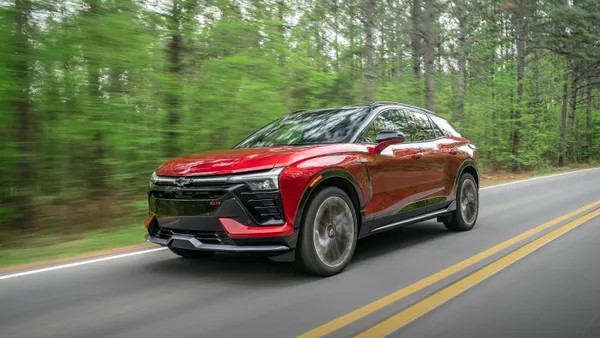The National Highway Traffic Safety Administration Office of Defects Investigation has opened a probe of Honda Motor Co. after receiving multiple reports of engine failures.
The probe covers approximately 1.4 million Honda vehicles produced between 2016 and 2020, and comes after the agency received 173 reports of connecting rod bearing failures on vehicles equipped with six-cylinder engines.
The vehicles under investigation include the 2016-2020 Honda Pilot SUV, 2018-2019 Honda Odyssey minivan, 2017-2019 Honda Ridgeline pickup, as well as the 2018-2020 Acura TLX sedan and 2016-2020 Acura MDX SUV from the automaker’s luxury brand. These vehicles were also included in a November 2023 recall for the same engine problems.
The NHTSA probe into the engine failures, which was opened on Nov. 8, will assess the scope of last year’s recall and the severity of the alleged defect in other Honda vehicles that were not included in it. According to the NHTSA report, all of the 173 owner questionnaires it received have “characteristics consistent with the previous recall,” but were determined to be “out of its scope.”
According to a service bulletin sent to the U.S. Acura dealers in February, Honda cited improper settings of equipment used to manufacture the V6 engine’s crankshaft, resulting in connecting rod journal dimensions being out of specification. The machining defect can cause increased friction between the journals and bearings, which can cause it to seize and lead to severe engine damage, as well as increase the risk of a fire, crash or injury.
Last year’s recall included an estimated 248,999 Honda vehicles equipped with V6 engines, but only 1% were estimated to have the defect. According to the NHTSA, Honda received 1,450 warranty claims for engine failures, but no reports of injuries from July 2014 through Nov. 3, 2023.
Honda was informed of the potential engine problem in November 2020 and continued to analyze and investigate the issue through February 2022. The manufacturing equipment setup and inspection processes were improved in 2020 to ensure that the engine’s crankshaft pins were manufactured within the proper tolerances, according to the 2023 NHTSA recall report.
In April 2022, Honda launched a detailed analysis of the problem, which focused on different crankshaft bearing specifications.
In February 2023, Honda expanded its investigation to vehicles that had not experienced the engine issues to conduct a comparison analysis. On Nov. 2, 2023, the automaker determined that an engine defect was still present and decided to conduct the recall last year.
It's not clear how long the current NHTSA probe will take to complete. But if the agency determines an engine defect is present in some or all of the 1.4 million vehicles, it could lead to a recall and increased warranty costs for Honda.












